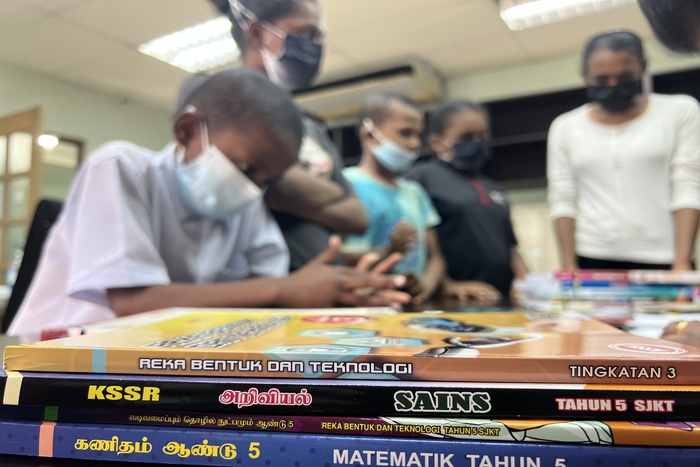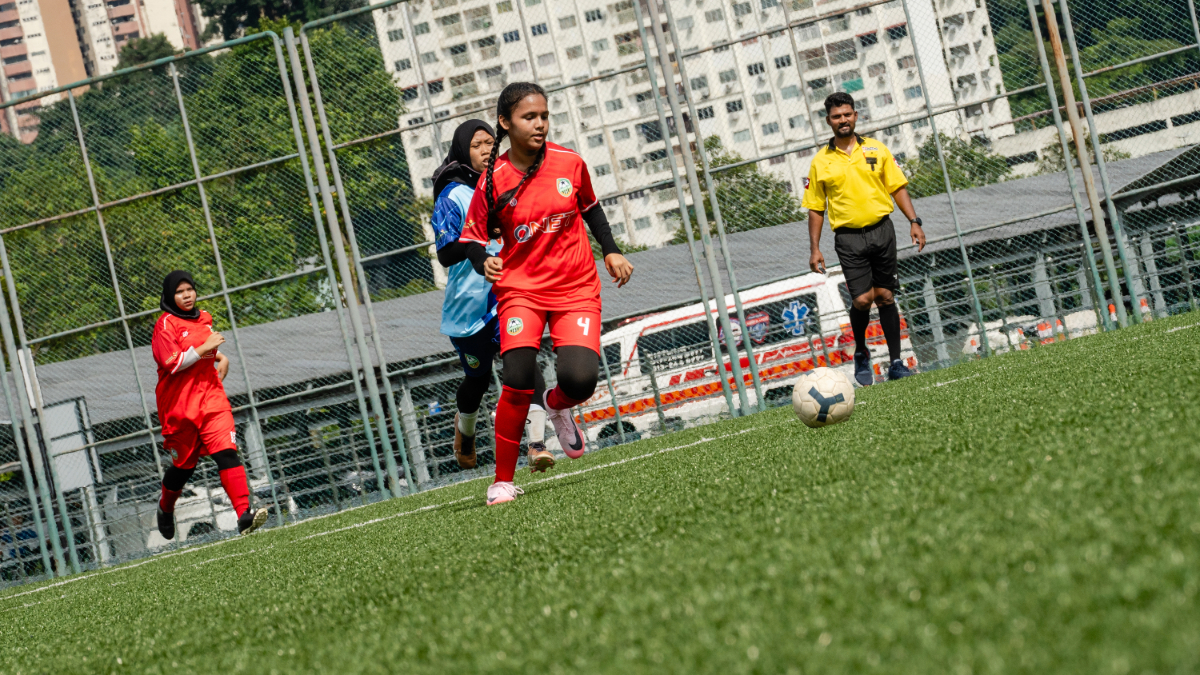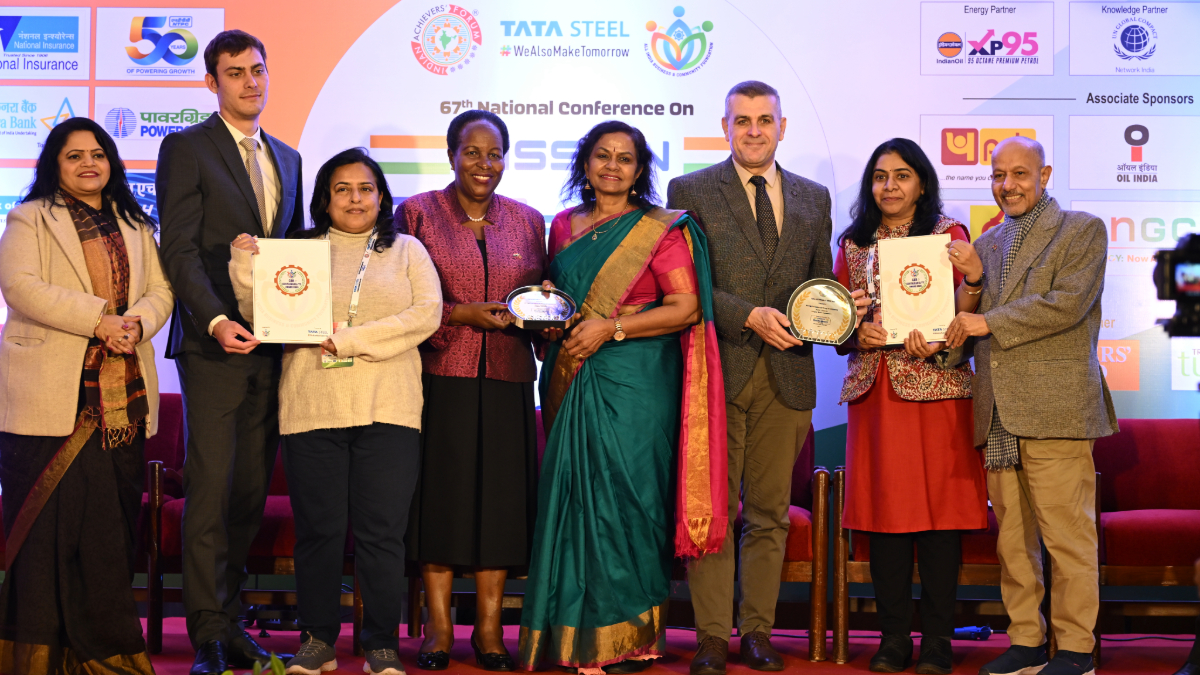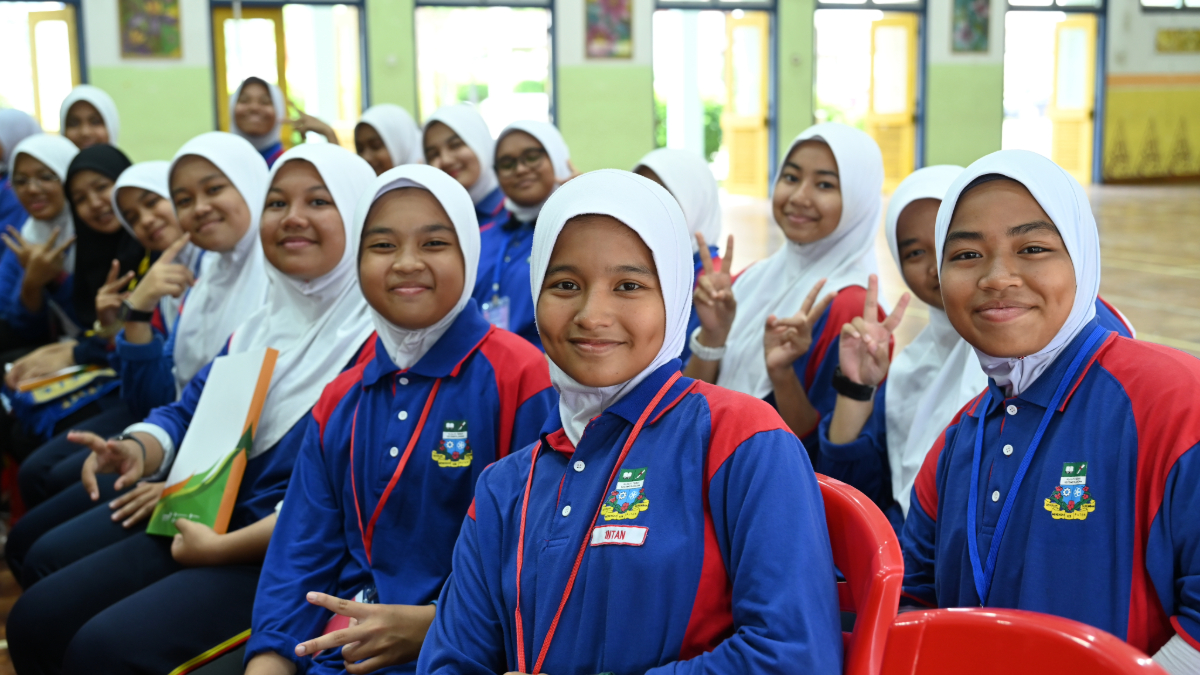The status of stateless children in Malaysia profoundly affects their ability to obtain an education.
Statelessness, the situation of not being recognised as a citizen by any country, affects millions globally. The United Nations High Commissioner for Refugees (UNHCR) estimates that there are 4.2 million stateless people in more than 94 countries. However, the figure is considered higher, given that most countries do not collect data on statelessness.
According to the agency, in countries hosting the 20 largest stateless populations, at least 70,000 stateless children are born yearly. The effects of being born stateless are severe. Children in more than 30 countries must have nationality documentation to receive medical care. In at least 20 countries, stateless children are not eligible for vaccination.
Furthermore, stateless people cannot often access the most basic rights, including registering a child’s birth and accessing health services. Their status profoundly affects their ability to obtain an education and fulfil their future ambitions and dreams.
In Malaysia, a group of child advocates has estimated that over 300,000 children are missing out on an education because they are stateless, refugees, asylum seekers, or undocumented.
The group comprising bodies such as the Human Rights Commission of Malaysia, Malaysian Paediatric Association, and National Early Childhood Intervention Council stated in March, “Denying these children education is effectively imprisoning them, and their future children, in poverty. These children are not numbers or statistics, but real lives damaged by our behaviour and response.”
Education for All – Including the Stateless
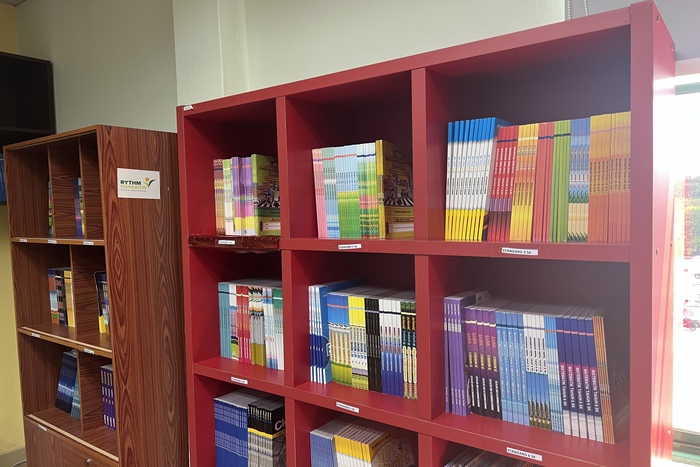
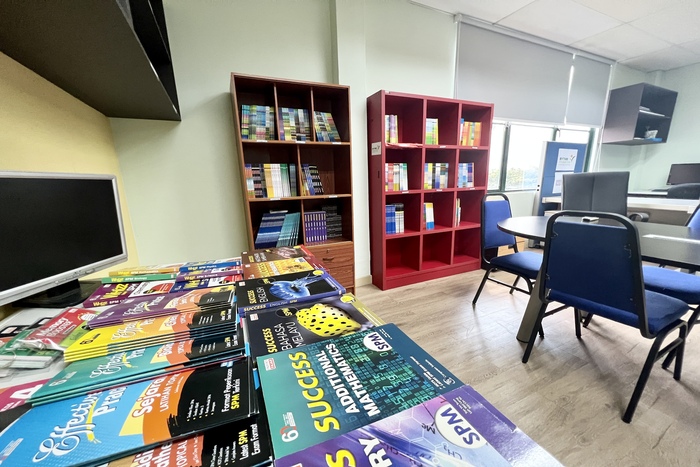
The RYTHM-DHRRA textbook lending library is initially expected to help 140 to 150 stateless students yearly.
RYTHM Foundation, the social impact arm of the QI Group, has long partnered with like-minded organisations on moulding projects that make education the catalyst for social transformation. Unwavering in our belief that every child must obtain equal opportunity and access to knowledge and learning, these have not excluded Malaysia’s stateless children.
One front-running educational collaboration is with the non-profit Development of Human Resources for Rural Areas Malaysia (DHRRA) – an NGO dedicated to poverty alleviation and people empowerment initiatives – to enrol and keep stateless and undocumented children in school.
The partnership recently progressed into a textbook lending library initiative for marginalised stateless children whose families cannot afford the expensive learning materials.
The collaboration is part of RYTHM’s Gift of Life (GOL) initiative, which focuses on critical and urgent community and individual needs. GOL has evolved to support marginalised individuals, groups, and communities in urban and rural areas, which started as a personal programme by the Group’s founders.
“In Malaysia, not all stateless children can attend school,” Maalini Ramalo, DHRRA’s Director for Social Protection, noted. “If they qualify for public education, they must pay a levy fee and are not eligible for the government textbook loan scheme.”
Maalini is dismayed that many stateless children have lost out on attending school due to financial constraints.
“Circumstances force many children to quit because they are from low-income families, and their parents cannot afford the expenses. Through this initiative with RYTHM, we want to ensure the children do not have their basic education process disrupted.
“They should never feel they are a burden to their parents and that the only way they can go to school is to buy what is simply available to every documented Malaysian child for free,” she added.
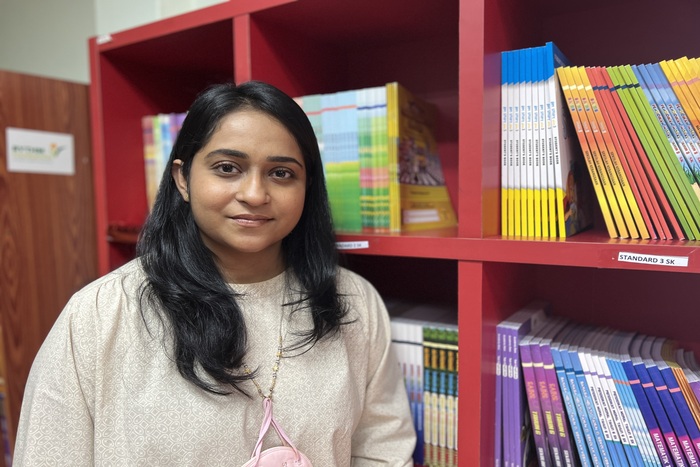
Maalini Ramalo of DHRRA says the initiative with RYTHM aims to ensure the education of stateless children continues uninterrupted.
‘It Will be Nice to See Our Bookshelves Empty’
RYTHM is conversant in working with DHRRA on educating displaced children. The Foundation previously contributed textbooks, levy funding, and provisions like school bags and shoes to beneficiaries selected by the NGO.
The idea to create the lending library emerged as RYTHM recently offered to contribute more textbooks to DHRRA. Maalini is grateful that the library will initially help 140 to 150 deserving students yearly.
“We appreciate RYTHM coming forward to help some of the nearly 300 students we currently support. The children, especially those enrolled in urban schools with no allocation, need all the help they can get.”
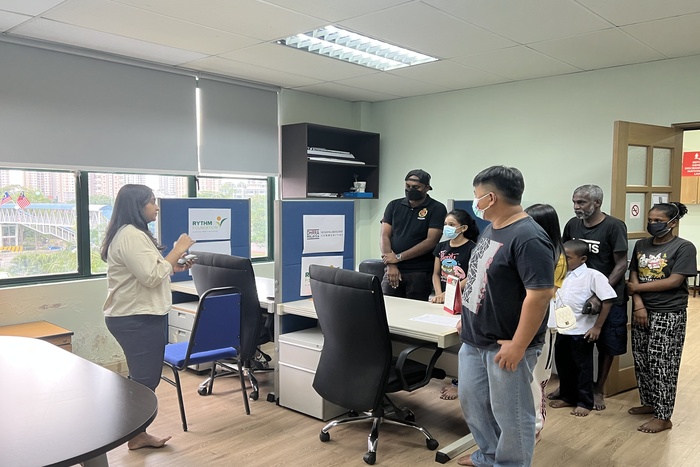
Maalini explains the initiative to families with stateless children.
Maalini said the beneficiaries would be encouraged to care for the books in their possession for the next child to benefit from the following year. She is understandably excited about the initiative.
“It will be nice to see our bookshelves empty. And when the students complete their academic year with a set, we look forward to lending them to the next batch of students. We also hope the stamp listing previous borrowers motivates the next stateless child to do well in school despite their challenging circumstances.”
Ray of Hope for Dutiful, Displaced Children
The notion that not all are born equal rings especially true for stateless individuals striving their hardest to be recognised.
For 11-year-old *Kai, the journey to get her Malaysian citizenship has been long and arduous.
“I have been trying to get my daughter’s citizenship for five years without any luck,” her father said. Several parties, including DHRRA, are trying to help us, but her application remains ‘under process.’ Also, getting her enrolled in school, in the beginning, was difficult,” he said.
Kai is appreciative of the lending scheme. “I am excited about getting the books I need for school next year. I will care for them and study harder to achieve my dream of becoming a teacher,” the Primary Five pupil said.
*Sofia, 18, and *Dayana, 11, are two of four siblings born to a Malaysian father and Indonesian mother whose marriage was not legally registered.
Fate dealt the family a cruel blow when their father passed, and their mother abandoned them. A Malaysian uncle has adopted them, but they have yet to become citizens.
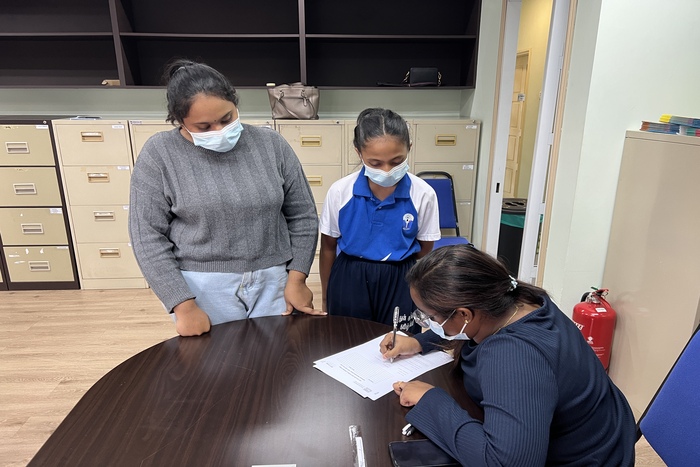
A student registers to receive the textbook aid through the RYTHM-DHRRA initiative.
“Our educational journey has not been easy because of our status,” Sofia related. “At times, I did not have the necessary books during my primary and secondary years. In addition, there were times when I could not attend school because we could not afford the levy fees.”
Sofia is keen to pursue tertiary education but worries about the prohibitive cost if she remains stateless. “Affordability remains an issue for our family. Although I was born to a Malaysian and we have been legally adopted by a Malaysian, I may have to pay the fees of an international student, which is higher in the country I consider my own.”
She is grateful for the lending scheme that will benefit Dayana. “This initiative for my sister will help lessen our family’s burden. I hope she will not have to go through what I did.”
RYTHM is accepting GOL proposals for financial grants from now until August 2022 via email at [email protected]. To learn more about the programme and how you can apply, click here.
(*Not their real names)

